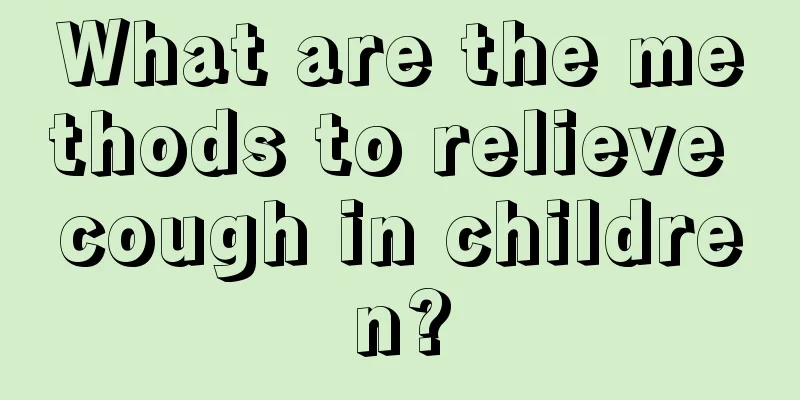Reasons for sweating on baby's head

|
Summer is here, and babies will sweat a lot when they sleep, and sometimes their clothes on their backs will get wet, which makes mothers worry that their babies will catch a cold. In fact, there are many reasons why babies sweat. There is no need to worry too much about physiological sweating, but pathological sweating should be paid attention to, as it is likely that the baby has a physical illness. So, how do you tell whether sweating on a baby’s head is pathological sweating? Physiological sweating VS pathological sweating, which one does your baby have? Mothers of babies who sweat a lot should first find out whether their babies are sweating physiologically or pathologically. The so-called physiological hyperhidrosis refers to sweating during sleep when the baby is well developed, healthy, and has no disease. Physiological sweating is often caused by children's large amount of exercise, rapid metabolism, high heat production, and relatively imperfect nervous regulation system. They can only regulate normal body temperature by sweating to evaporate the heat in the body. The method of distinction is very simple. Mothers should observe carefully. If the baby sweats profusely as soon as he falls asleep, but it only happens within the first hour of falling asleep, and he rarely sweats in the second half of the night, this situation is mostly a normal physiological phenomenon and there is no need to worry too much. Pathological sweating is completely different. It occurs when the baby is in a quiet state. Pathological sweating is mostly caused by the following three situations: 1) Some babies sweat mainly in the first half of the night after falling asleep, which is often caused by low blood calcium. Low calcium can easily increase the excitability of the sympathetic nerves, just like turning on the "faucet" of the sweat glands. This situation is particularly common in babies with rickets. Rickets is a disease caused by a lack of vitamin D, which affects the absorption of calcium and phosphorus, resulting in impaired bone growth and development. In addition to bone problems and excessive sweating, rickets is often accompanied by other more obvious symptoms, such as "occipital baldness" - because the pillow is irritated by sweat, babies often shake their heads and rub against the pillow while sleeping, resulting in sparse and falling hair on the pillow, forming typical occipital annular hair loss. Mothers need to observe carefully to determine whether their babies have the above conditions. 2) If the baby sweats not only in the first half of the night but also in the second half of the night and before dawn, it is mostly a sign of illness, the most common of which is tuberculosis. Tuberculosis also has other symptoms, such as low fever, weight loss, fatigue, loss of appetite, flushed cheeks, etc. Children with tuberculosis tend to sweat easily during daytime activities, which is called spontaneous sweating, and sweating at night is called night sweats. In addition, heart disease, diabetes (hypoglycemia), etc., can also cause the baby's sympathetic nerves to be in a state of tension due to the body's internal pressure, resulting in "night sweats" or "cold sweats on hands and feet". If the mother suspects that the baby's sweating is caused by this reason, she should take the baby to a pediatric clinic or hospital for examination in time. 3) There is another type of babies who sweat a lot. They have weak constitutions and weak immunity, which is what Chinese medicine calls "weak exterior and weak body". These babies often sweat a lot on the head and shoulders, have pale faces, and cold hands and feet. Excessive sweating is harmful to baby's health "Sweat is the fluid of the heart." Modern medical research shows that excessive sweating will lead to the loss of essential trace elements in the body, electrolyte imbalance, and affect the healthy growth of the baby. Some babies who sweat too much may have symptoms such as pale complexion, crying at night, dry stools, decreased appetite, poor spirits, and dreamy sleep. In severe cases, it can also lead to memory loss, intellectual retardation, susceptibility to colds and other problems, affecting the baby's growth and development. Therefore, mothers should never underestimate their baby’s excessive sweating. How to deal with baby’s excessive sweating? For babies' physiological hyperhidrosis, drug treatment is generally not recommended. Instead, appropriate measures should be taken to eliminate factors in life that cause high fever. For example, the baby's activity and food intake before going to bed should be controlled to prevent the baby from sweating at night due to excessive activity before going to bed or eating high-calorie foods; the bedroom temperature should be controlled at 24℃~28℃, and the thickness of the quilt should be increased or decreased with changes in temperature; do not dress the baby in too many clothes. For babies with pathological night sweats, treatment should be targeted at the cause. For night sweats caused by calcium deficiency, calcium, phosphorus, vitamin D, etc. should be supplemented appropriately, and the following points should be achieved: (1) More exposure to sunlight, including outdoor light and reflected light. You can do activities outdoors, but don't expose yourself to the sun through glass. (2) Vigorously promote breastfeeding. (3) Premature infants, twins, children with frequent diarrhea or other digestive tract diseases should pay attention to adding vitamin D. (4) People in rural areas or cold regions in the north should take measures to prevent rickets, such as “sunbathing in the summer and taking vitamin D supplements in the winter”. For night sweats caused by tuberculosis, regular anti-tuberculosis treatment should be carried out under the guidance of a doctor. The above is an introduction to the reasons why babies sweat on their heads. Now you have a certain understanding of physiological sweating and pathological sweating. In fact, when a baby's head sweats, whether it is pathological sweating or not, parents must do a good job of care. When the baby sweats, wipe him/her dry with a towel in time, give the baby more water to avoid colds. |
<<: What is the reason for the red spots on the child's face?
>>: Pay attention to sticky baby stools
Recommend
What should I do if my child has a muscle strain?
Many children do not exercise regularly, and they...
What's wrong with baby's eye bags?
For mothers, if they find that their babies have ...
Can the baby be vaccinated if he has diarrhea?
Friends who are parents all know that if the baby...
What to do if your child has asthma
The air quality is particularly poor now, so ther...
The dangers of holding your baby upright
When a baby is born, everyone will be very happy ...
5 nutritious breakfasts for kids
A year's plan starts with spring; a day's...
Introduction to feeding temperature for newborns
For newborns, correct care methods are the key to...
How to treat infectious vomiting in children
Nowadays, the diseases that children get are beco...
What should I do if my 2 and a half year old baby can't speak?
If a two and a half year old baby still cannot sp...
Is it possible to see blood in children's urine?
Hematuria is a common phenomenon in normal times....
What should I do if my child has redness, swelling and ulcers on the upper part of his throat?
Children's bodies are very fragile and can ea...
What should I do if my child has red spots on his face?
Children's immunity is relatively weaker than...
What are the symptoms of sinusitis and adenoid hypertrophy in babies?
We all know that sinusitis is a very common disea...
Why do children lose their appetite?
Nowadays, many children have similar conditions s...
Dietary treatment for bronchitis in children
Bronchitis is a common disease, usually affecting...









